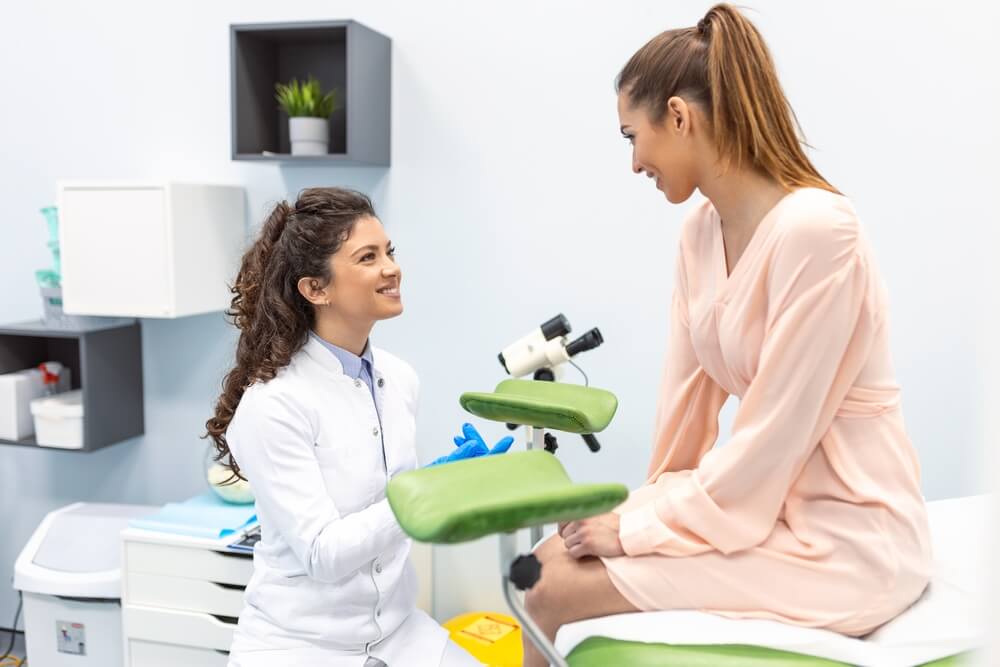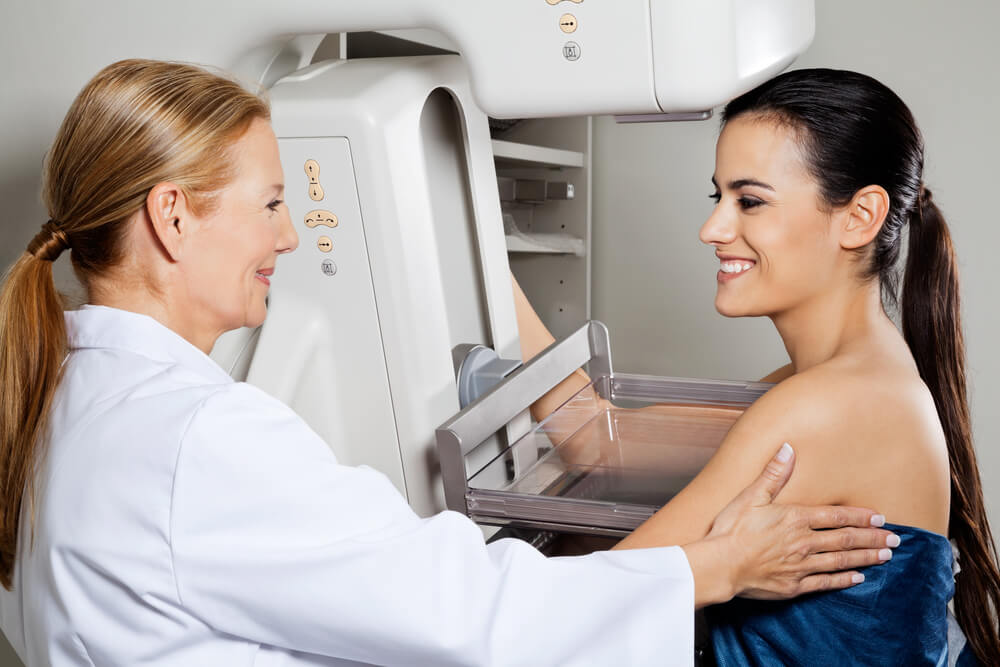It’s that time again.
There is something about the end of the year that triggers our internal reminder to schedule our annual check-up with our OB-GYN.
The good news is it is free even if you have not met your insurance plan’s deductible. Under the Affordable Care Act, women are entitled to one free well-woman exam each year.
What Is an Annual Check-Up?
An annual medical check-up, often also called a well-woman exam, is performed by a medical professional specializing in women’s obstetrics and gynecology (OB-GYN). An OB-GYN professional is trained in gynecological health and understands what to look for to prevent diseases and reproductive problems.
The goal is preventative care. Often, problems may develop with no noticeable signs or symptoms. If left untreated, these problems can become more challenging to treat later. For this reason, annual health checks for women are an important way to identify and deal with health problems as early as possible. Visiting your OB-GYN each year helps ensure optimal health and serves as an opportunity to catch any signs of serious issues early.
Your annual health screening will generally begin with a conversation with your OB-GYN and or our nurse practitioners. Here are some typical questions:
- Family history
- Medications you are currently taking
- Sexual health
- Menstrual changes
- Vaginal infections
- Methods of birth control
- Pelvic pain
- Family planning
- Diet
- Alcohol consumption

How Should I Prepare for My Health Screening?
If you’re seeking a new OB-GYN, there are several things to keep in mind to ensure your comfort and to make the most of your visit. First, organize any concerns or questions you’d like to address in advance. Is there something that has been bothering you for a while? Are you worried about something? Take notes of those thoughts and bring them with you.
Second, consider if you are more comfortable having a male or female OB-GYN. Being with a physician, you feel comfortable with can make a big difference in establishing a good provider relationship. At South Miami OB-GYN Associates, we have both male and female physicians as well as nurse practitioners, which provides our patients with a wide variety of excellent options. Lastly, prepare yourself to communicate openly and honestly with your OB-GYN. Some topics or concerns may be uncomfortable to discuss, but a good open conversation can lead to practical solutions, and HIPAA regulations ensure your information remains confidential.
Here are some typical topics to discuss with your OB-GYN:
- Missed or late periods
- Abnormal or heavier-than-usual bleeding
- Unusual pain during intercourse
- Unusual vaginal discharge
- Any breast pain or lumps observed
What Tests Can Be Done During a Medical Check-Up?
There are three basic exams your OB-GYN will do with each annual check-up. These include a pelvic exam, a breast exam, and a pap smear. The pelvic exam will use a device called a speculum to check all areas of your pelvis for signs of any cysts, infections, or cancers. For a breast exam, your OB-GYN will perform circular motions around each breast to check for lumps and other signs of cancer.
The third test, a pap smear, is painless and is done during the pelvic exam. The purpose of a pap smear is to look for any precancerous cells in the cervix. During the pap smear, your OB-GYN will use a long swab to collect cell samples around the cervix. These cells will then be sent to a lab for testing. The result of this test will either show as “normal,” meaning no signs of precancer were detected or as “abnormal,” which will prompt further examination.
According to the American College of Obstetricians and Gynecologists, scheduling your pap smear depends on your age:
- Women 21 to 29: Every three years
- Women 30 to 65: Every five years, with an HPV test
While these are the three standard exams your OB-GYN will conduct, there are many others that can be done as needed.
Here are a few additional tests that can be scheduled during an annual check-up:
- HPV testing to check for signs of HPV
- Mammograms to check for breast cancer
- HIV testing
- Chlamydia testing
- Gonorrhea testing
- Hepatitis C testing
- Diabetes profile assessment
These tests may incur additional fees since they are not a standard part of the annual exam.

What If the Results of My Pap Smear Are Abnormal?
If the results of your pap smear come back as “abnormal,” try not to panic. Your OB-GYN will likely schedule you for further examination to determine what caused the abnormality. This determination will be made through a colposcopy exam.
A colposcopy exam is a way to test for cervical cancer by taking a closer look at the cervix than can be done with a standard pap smear. Similar to a pelvic exam, a colposcopy involves inserting a speculum into the vagina to create an opening. Then, your OB-GYN will insert a vinegar-like solution onto the cervix so they can better see any abnormal cells.
Once this is done, a colposcope is used to examine the cells closely. Unlike the speculum, the colposcope does not go inside the body. It remains on the outside and features binocular-like qualities with a bright light to enable your OB-GYN to do the examination. If your OB-GYN notices anything unusual, they will do a biopsy to take a small sample of the unusual cell to send to a lab.
A colposcopy is a health screening that only takes 5-10 minutes and is generally pain-free. You may experience slight pressure similar to a pap smear with a colposcopy. If a biopsy is performed, this can feel like a period cramp and may result in some light spotting for a few days afterward.
What is HPV?
Human papillomavirus, or HPV, is a cancer-causing virus transmitted sexually through infected partners. Often, people infected with HPV are not aware that they are carriers, as HPV doesn’t always have signs or symptoms. Further, a person may have contracted HPV, and not develop symptoms until years later, making it difficult to identify when and from whom it was contracted.
While there were 43 million new infections of HPV in 2018 according to the CDC, this virus is particularly concerning for women. HPV is the leading cause of cervical cancer in women, and the American Cancer Society estimates about 14,100 women will develop cervical cancer just this year.
Visiting your OB-GYN annually for a medical check-up and pap smear is the best way to check for and monitor HPV. If you contract HPV, your OB-GYN can then set a plan in place to monitor the cervix more often for any signs of pre-cancerous development. Of course, there isn’t a way to prevent cancer, but if signs are caught early, treatment will be more effective. If you’re under the age of 18, talk to your OB-GYN about getting the HPV vaccine.
Ensuring Your Optimal Health
Scheduling an annual health screening with your OB-GYN is just one part of managing your overall health. Addressing any health concerns in all areas, including reproductive health, is optimum.
At South Miami OB-GYN Associates, we have seen firsthand the benefits of our patients returning each year for their regular health screenings. With offices both in Downtown Doral and South Miami, we look forward to welcoming you and taking care of both your OB and GYN needs.
Schedule your annual health screening in South Florida today online or by calling 305.665.1133.




